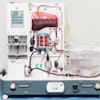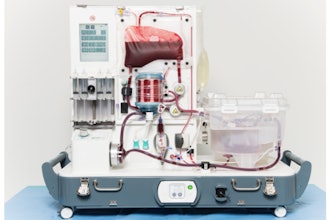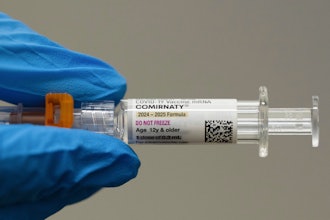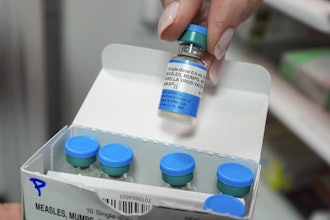
Baxter International announced the completion of the first phase of its intravenous (IV) bag recycling program pilot. Launched in conjunction with Northwestern Medicine, an integrated academic health system in Chicago, more than six tons (or 12,000 pounds) of polyvinyl chloride (PVC) IV bag waste — enough to cross the city of Chicago if bags were laid end-to-end — has been successfully diverted from landfill to be recycled for a useful second life. This program is the first of its kind to launch in the U.S.
Unlike other medical equipment products such as syringes and needles, which have established post-use collection methods, standard practice for non-hazardous IV bag removal includes draining of residual fluid and disposing as waste that ultimately ends up in a landfill. Through this pilot program, stakeholders from several Northwestern Memorial Hospital departments — including nursing, supply chain and environmental services — were engaged to help develop a new process that enables the incorporation of material separation for recycling into nursing workflow while also managing space constraints common to hospital settings. With dedicated third-party logistics and recycling partners, collected IV bags are transported and inspected to ultimately be recycled into products such as industrial floor mats and protective edging for docks and landscaping. All IV bags involved in this pilot were made of PVC, one of the most widely used plastic materials in medical products.
Baxter’s objective for the pilot’s first phase was to establish proof of concept for a program that assists hospitals in recycling plastic IV bags manufactured by Baxter. Following the successful conclusion of the pilot phase, Northwestern Medicine will continue to implement the program and will explore expanding the program throughout the health system. Baxter is now actively seeking to engage additional health system participants in the Chicago area to further validate the process and economic feasibility. Doing so will support long-term, large-scale implementation with potential roll out to other health systems across the country.
This program builds on Baxter’s innovative experiences partnering with hospitals and waste collection companies outside of the U.S. to recycle valuable materials at the end of product life. In recent years, Baxter has introduced several programs to facilitate recycling for patients and hospitals in Australia, New Zealand, Guatemala and Colombia.






















